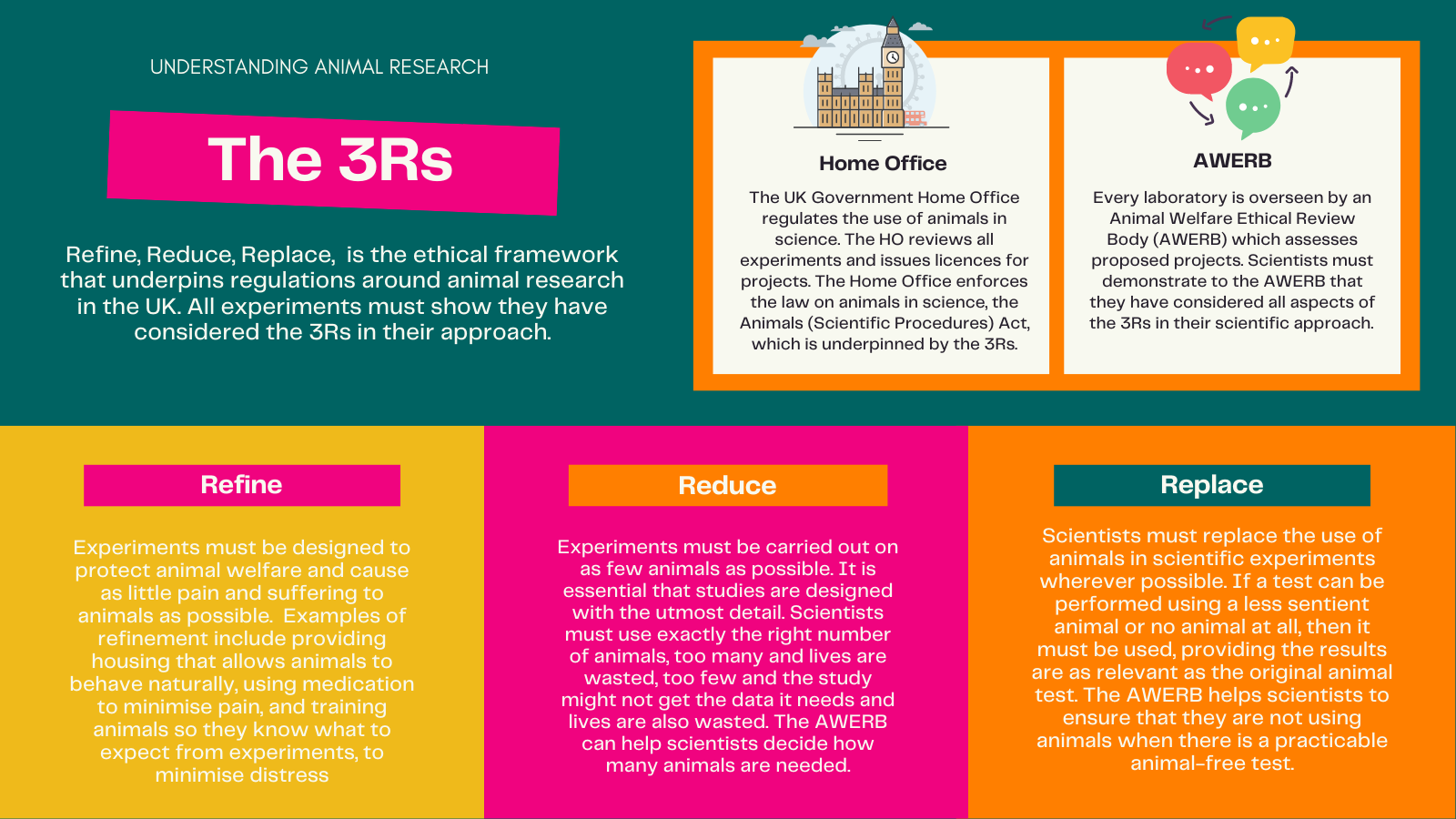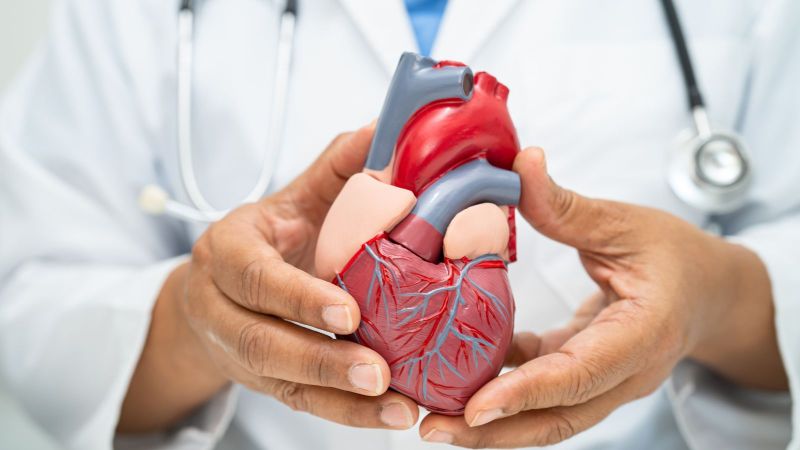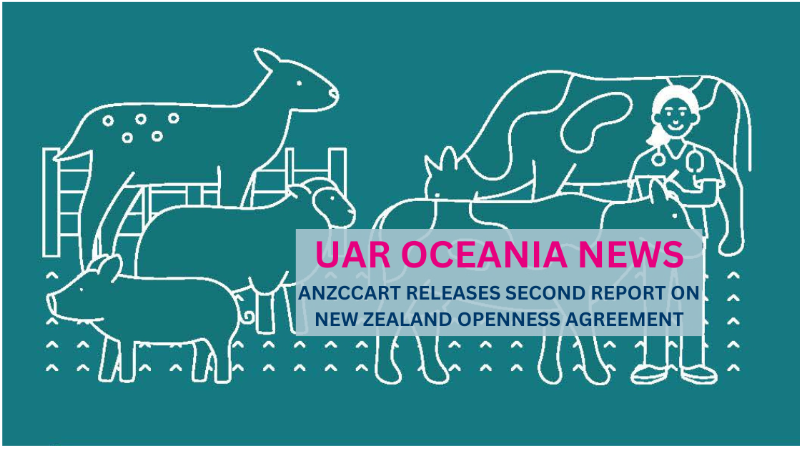The welfare of animals used in research is very important. There are good ethical, scientific, legal and economic reasons for making sure that animals are looked after properly and used in minimum numbers.
The people who work in laboratories – scientists, vets, animal carers – are human beings like everyone else and have no desire to mistreat animals. For many of them, it is their primary responsibility to look after the animals, and they work with laboratory animals because they are animal lovers. Many are also actively involved in developing scientific methods to reduce the need for animals or replace them entirely.
Good science and good animal welfare go hand in hand. If an animal is suffering stress or pain it could affect the results of the research. So it makes good scientific sense to house animals in the best possible conditions and make sure they get the best possible care from skilled and experienced carers. What animals need is not always the same as what people think they need, so scientists are studying which environments different animals prefer.
The guiding principles underpinning the humane use of animals in scientific research are called the three Rs. Any researcher planning to use animals in their research must first show why there is no alternative and what will be done to minimise numbers and suffering, ie:
- Replace the use of animals with alternative techniques, or avoid the use of animals altogether.
- Reduce the number of animals used to a minimum, to obtain information from fewer animals or more information from the same number of animals.
- Refine the way experiments are carried out, to make sure animals suffer as little as possible. This includes better housing and improvements to procedures which minimise pain and suffering and/or improve animal welfare.
Combining the 3Rs
In some cases, it is possible to develop a whole new way of conducting a test involving fewer animals. For example, the LD50 test was used for many years to find out how toxic chemicals are. Scientists developed better tests, to do the same job but using fewer animals and designed so that none intentionally received a fatal dose. The LD50 is now banned in the UK. And a recent review conducted by the pharmaceutical industry showed that much of the data from single-dose acute toxicity tests in rodents can be collected from other tests, meaning that fewer rodents are required in the development of new medicines.
Read more: The UK National Centre for the Replacement, Refinement and Reduction in Animals in Research (NC3Rs) is an independent scientific organisation tasked by Government to fund innovation and technological developments that replace or reduce the need for animals in research and testing, and lead to improvements in welfare where animals continue to be used.
View this post on Instagram




